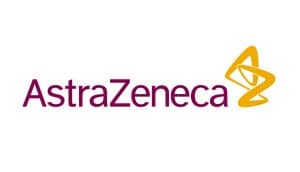
AstraZeneca’s hopes of taking on rival GlaxoSmithKline in the respiratory antibody sector have taken a knock after a failed phase III trial.
AZ’s injectable interleukin-5 inhibitor antibody Fasenra (benralizumab), already competing with GSK’s Nucala (mepolizumab) in the severe asthma market, was unable to show a benefit compared to placebo reducing exacerbations – a sudden worsening of symptoms – in moderate to very severe chronic obstructive pulmonary disease (COPD) patients.
Both drugs are thought to work by depleting the body of eosinophils, a type of white blood cell linked to exacerbations in asthma and also potentially COPD.
The GALATHEA study involved 2,000 patients and pitted Fasenra against placebo as an add-on two standard two- or three-drug combinations for COPD. AZ isn’t giving up on Fasenra in COPD just yet, as it has a second phase III trial (TERRANOVA) that is due to read out in the coming weeks.

“We will now await the results of TERRANOVA and a full evaluation of both trials to determine next steps for Fasenra in COPD,” said Sean Bohen, AZ’s chief medical officer (pictured).
It’s not the first time that benralizumab hasn’t quite hit the mark in COPD. Back in 2014, AZ reported a study showing that the drug was unable to improve the rate of exacerbations in COPD compared to placebo, although it did improve other measures such as lung function scores.
GSK has already filed for approval of Nucala for COPD, but there’s no guarantee that things will go smoothly for that drug either. In the METREX trial reported last year Nucala hit its objective of reducing moderate to severe exacerbations, cutting them by 18% compared to placebo. This just about achieved statistical significance, but the drug didn’t meet that target in a second study (METREO).
The company has since said that a meta-analysis of the two trials indicates that its drug may be most effective for COPD characterised higher eosinophil levels, which could allow selection of patients most likely to respond to the drug.
Nucala was the first IL-5 inhibitor to reach the market in 2015, and made £344m ($465m) in sales last year. Fasenra was approved in the US last November and in Europe in January, and AZ didn’t break out early sales in its 2017 results statement. A third IL-5 inhibitor – Teva’s Cinqair/Cinqaero (reslizumab) – has been available since 2016 but in an intravenous formulation only, and the company’s attempts to develop a subcutaneous version has hit clinical trial setbacks.
Fasenra is one of three biologics AZ hopes can restore growth in its respiratory franchise, which has been hit by patent expirations and pricing pressure. IL-13 inhibitor tralokinumab has been abandoned after three failed late-stage trials, however, while AZ also has an Amgen-partnered thymic stromal lymphopoietin (TSLP) targeting antibody – tezepelumab – in phase III testing for severe asthma.




